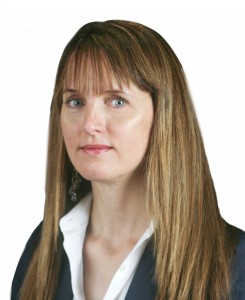BBG Watch Commentary
 Former Broadcasting Board of Governors (BBG) member Susan McCue was known for her concern for journalists working for BBG media entities and her for desire to serve information needs of the most underprivileged audiences. She was a strong critic of the BBG bureaucracy and is credited with saving Radio Free Europe / Radio Liberty (RFE/RL) from its management crisis in 2012. She is fondly remembered by BBG employees as a champion of good governance and innovation.
Former Broadcasting Board of Governors (BBG) member Susan McCue was known for her concern for journalists working for BBG media entities and her for desire to serve information needs of the most underprivileged audiences. She was a strong critic of the BBG bureaucracy and is credited with saving Radio Free Europe / Radio Liberty (RFE/RL) from its management crisis in 2012. She is fondly remembered by BBG employees as a champion of good governance and innovation.
McCue is now a member of the Board of Directors of the Millennium Challenge Corporation (MCC), an independent U.S. foreign aid agency leading the fight against global poverty.
In an article published in The Huffington Post Impact, McCue describes how hundreds of millions of poor people in Africa and around the globe really live and what is needed to bring them out of poverty.
“Energy poverty is a critically important issue. Lack of access to safe, reliable, affordable energy has a deep impact on people’s lives and on a country’s ability to sustain real economic growth. That’s why, for millions of people living in extreme poverty across the continent of Africa, the solution can begin with a connection to electricity.”
It was announced at the U.S.-Africa Leaders Summit that MCC will invest $498.2 million to support transformation of Ghana’s power sector and stimulate private investment.
READ: Electricity Will Give Life to Economic Growth in Africa, Susan McCue, President of Message Global; Millennium Challenge Corporation Board of Directors, Huffington Post Impact, August 4, 2014.
BBG Watch Commentary
Susan McCue’s article is an important one in terms of how America looks at the world and how the Broadcasting Board of Governors where she had previously served looks at the world. The BBG bureaucracy does not look at the world the same way Susan McCue does and the way the Obama Administration does to a large degree.
Poor people in Africa Ms. McCue describes in her article are deprived of economic dignity. While Ghana is a constitutional democracy, in many other countries poor people are also deprived of liberty. They live not only in Africa but also in Asia and in other parts of the world. Unfortunately, they are being marginalized even by Ms. McCue’s former agency, the Broadcasting Board of Governors, despite its public funding and a public mission to serve those who can’t get uncensored news any other way.
While Ms. McCue writes about the lack of reliable electric power, it’s easy to conclude from her article that many poor people who lack electricity also don’t have computers, Internet access and satellite television. They may listen to radio if they can afford it.
But the Broadcasting Board of Governors Shortwave Committee recently “found that, in large measure, the profile of shortwave users is not well-aligned with the target audiences that most BBG networks are trying to attract and that these users generally had viable alternative means in accessing USIM content.” In other words, the BBG has declared that it is no longer interested in economically underprivileged groups — those that don’t have alternative means. While Voice of America shortwave broadcasts to Africa continue, they were recently cut to Asia. Poverty is not limited to Africa.
Radio, which has always been the least expensive mass communication tool for poor people, is being discounted. According to the BBG Shortwave Committee, “for many around the world, the next electronic media they acquire will be a cell phone or similar mobile device.”
BBG members and officials of the BBG’s International Broadcasting Bureau (IBB) should read Susan McCue’s article to learn what it means to be poor in Africa and elsewhere. They should reexamine their position on radio broadcasts. While access to the Internet is extremely important, the U.S. should not forget about those who don’t have it, won’t be able to afford it for a long time, can’t pay for Internet access on mobile devices, have their Internet access censored, or simply don’t have electricity. There are hundreds of millions of people like that and their situation described in Susan McCue’s article is just one example that life is very different for those who are poor.

Comments are closed.